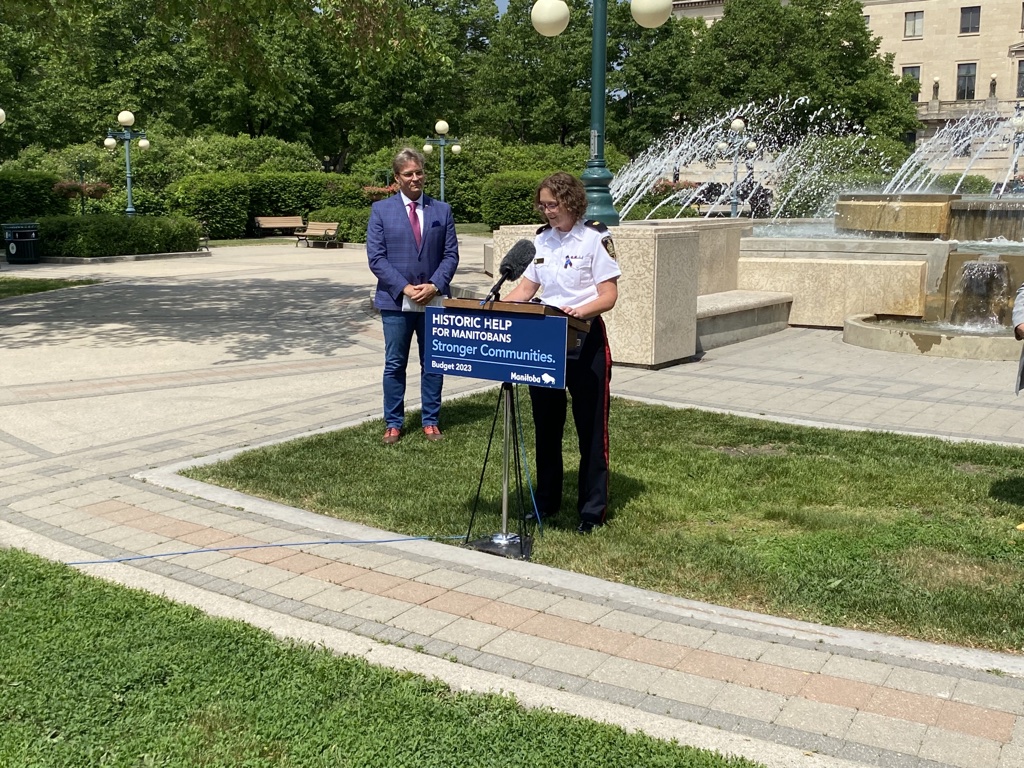A pilot project that pairs people who call 911 amid a mental health crisis with a support worker and a plainclothes police officer will now be permanent.

The province is spending $414,000 to expand the Alternative Response to Citizens in Crisis program, which started in 2021 in response to rising numbers of mental health calls.
“Over the course of the pilot project, it became clear why agencies across the globe have taken a similar approach,” Winnipeg police Insp. Helen Peters said in a press release.
In 2020, Winnipeg police conducted 18,992 well-being checks, which made it their most common type of call for the first time.
That same year, police made 2,102 trips to a health-care facility with persons in crisis and spent nearly 3,533 hours, or the equivalent of 147 days, waiting to turn the person over to clinical staff.

After implementing the ARCC program, the province says 82 per cent of the 882 responses by ARCC were resolved by their intervention.

Get weekly health news
The program sees clinicians from Health Sciences Centre’s Crisis Response Centre partner with a plainclothes officer and respond to calls for mental health services in tandem with general patrol officers. The team is dispatched after officers do an initial check on the affected person.
“Traditional law enforcement responses to mental health crisis calls can be traumatic and can result in unnecessary and involuntary presentations to emergency departments,” Mental Health and Community Wellness Minister Janice Morley-Lecomte said in a statement.
The money will go toward expanding ARCC’s availability from five days per week to seven.
ARCC is a response to the VIRGO report, a 2018 strategy outlining 125 recommendations to improve the way the province handles mental health and addictions services.









Comments
Want to discuss? Please read our Commenting Policy first.